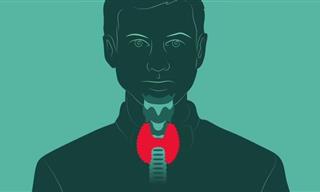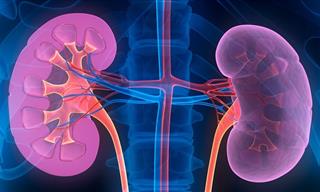1. Don’t Cheat on Your Pharmacist

It might be convenient to sometimes use the pharmacy at work, and other times, the one closest to your home, but filling your prescriptions at multiple locations removes a layer of protection from your care, which could end up making your prescriptions less effective, or even deadly. Drug interactions are a real thing – and that includes every drug, even those that don’t require prescriptions.
“Make sure all your doctors are aware of every medication you’re taking, including over-the-counter medicines, vitamins, and herbs,” says Brian R. Malone, R. Ph, director of Pharmaceutical Services and Medication Safety Officer at NYU Winthrop Hospital on Long Island. Keep in mind that some medications cancel each other out and others are dangerous to mix.
2. Don’t Take Medical Matters into Your Own Hands
Medication can be expensive, but don’t let the cost jeopardize your health. According to Gonzalez, patients should become better educated about their medication options, including costs, but must be proactive, and ask to be counseled, if that vital information isn’t readily available.
“Today’s drugs are so potent and so expensive. Taking them correctly is the key to disease management. Many patients who have reached, or exceeded, their max now have to pay a higher fee for their prescriptions and tend to start extending the medications they have by not taking them as prescribed, or not taking them at all. This is a very dangerous practice," he says. You should talk to your doctor or pharmacist about plans which you can afford, and find out which drug manufacturers might be willing to provide you with lower-cost or free medication.
3. Ask Questions
Your pharmacists are there to help. They are an incredibly knowledgeable resource that you should use, especially if you have a doctor who watches the clock during appointments. “Always ask for information about your medicines in terms you can understand,” says Malone, who suggests asking these questions each time you have a new prescription:
• What is the medicine for?
• How am I supposed to take it and for how long?
• Are there any side effects? What should I do if they occur?
• Is this medicine safe to take alongside other medicines or dietary supplements?
• What food, drinks, or activities should be avoided while taking this medication?
4. Save the Internet for Social Networking, Not for Buying Medicine
Patients need to understand that it is dangerous to purchase medication from unapproved sources. If you see drugs being sold for dramatically low prices, they are most likely to be counterfeit. “The U.S. Food & Drug Administration has the highest standards of drug approval in the world, and all manufacturers must comply. That is not true of drugs you buy from unauthorized sources, including individuals who claim to be selling prescription drugs that they no longer need,” says Gonzalez. In a lot of cases, this is actually illegal.
5. Check and Double-Check
Patients need to check their drugs before they leave the pharmacy. You should check the name of the patient, drug, doctor, and directions. If your medication looks different, either in shape or color, check with the pharmacist.
6. Ask for Help When You Need It
If you keep forgetting to take your medications, have a family member or friend pre-pour your medications into a medication planner. This can also help you avoid overdoses as it will prevent you from accidentally taking two doses.
7. Check Expiration Dates

“Outdated medications not only lose their strength, but can also become toxic, and make you ill,” says Malone. Therefore, once or twice a year, you should check the expiration dates on your prescription and over-the-counter medications, and dump anything that has expired. Some people do this when they change the batteries in their smoke detectors, or as part of an annual spring-cleaning ritual.
8. Personalize Your Medication Bottles
If you live with other people, separate everyone’s medication if possible and keep them in different places. If this just isn’t practical, find a way to identify each person’s medications. Pill bottles all look similar, and so do many pills. You can try color-coding the bottles with a marker or with nail polish so you don’t take someone else’s medication by mistake.
9. Don’t Crush Them
Even though pills can be hard to swallow at times, they should never ever be crushed without your doctor’s permission. This is because some medications are time-released and have been designed to slowly enter your bloodstream. Crushing them up eliminates the ability to work as they should and can be dangerous.
If you’re having difficulty swallowing your pills, don’t stop taking your medication. Instead, talk to your doctor about alternative drugs, such as those in liquid form, which will be easier for you to tolerate.
 Go to BabaMail
Go to BabaMail


























